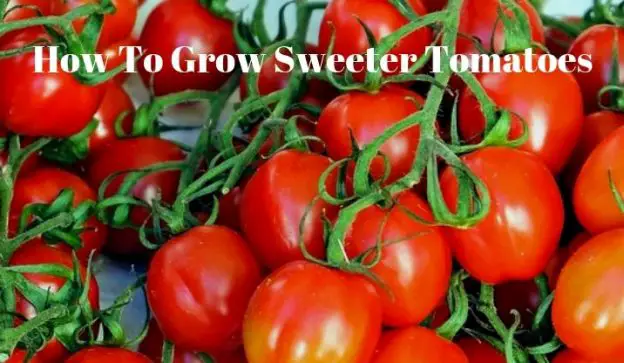Whenever this subject comes up, it turns into a massive debate because everyone seems to have an opinion. I tend to do as much research as I can and then come to a decision on any given subject. That’s why I want to tell you how to grow sweeter tomatoes, i have touched on this before on how to grow the tastiest tomatoes.
This post however is just about how to grow sweeter tomatoes.
To get the best from any plant you need to start at the bottom and in this case that’s the soil. Whether you’re growing tomatoes in the ground or in containers the soil has to be right. Now nobody has perfect soil, and all soil can be improved.
The Perfect Soil For Tomatoes
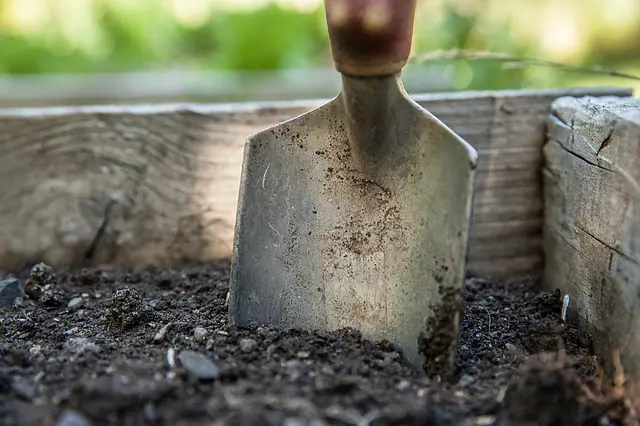
Tomatoes do best in loamy, sandy soils with added compost or well rotted manure but will grow in any soil except heavy clay. To improve soil conditions add compost or manure, you’re aiming for soil that is free draining but will retain some moisture. You can grow tomatoes in any growing medium as hydroponic gardening proves.
Sticking with soil though, aim for the best you can, healthy soil means healthy plants and happy plants produce more produce. Or so you’d think, but certainly with tomatoes that’s not the case. To qualify that statement I need to explain the fundamental reason tomato plants produce fruit.
Why Do Tomato Plants Produce Fruit?
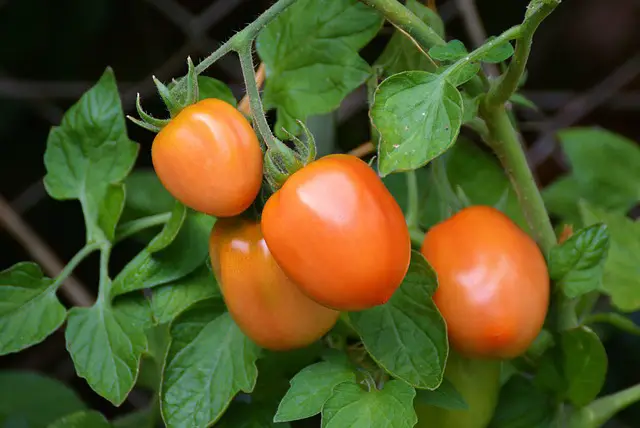
As with all life on planet earth tomato plants produce fruit to perpetuate their species. Or to put it in simpler terms, tomatoes produce fruit to keep their particular genes alive. See tomatoes produce fruit which is eaten by birds/animals, the seeds contained within that fruit is spread through the bird/animal’s waste and a new plant of the same type grows.
How To Grow Sweeter Tomatoes Using Sunlight

The most important factor in producing sweeter tomatoes is more sunlight. Plants use photosynthesis which according to the Royal Society of Chemists is the process by which plants use the energy from sunlight to produce glucose. So in a nutshell, more sunlight means more glucose (which is a sugar) which is stored in the fruit.
That’s great but you can’t just magically increase sunlight, however armed with this information you can site your tomato plants in a part of the garden that gets the most sun. Even then you can’t really guarantee the amount of sunlight. So that one is out of our control unless you want to spend a fortune on grow lamps.
How To Grow Sweeter Tomatoes By Reducing Water

Once the tomato plants have set fruit, try to cut water by 50% according to scientists this will produce tomatoes that are up to 30% sweeter. Now the reason for this takes us back to happier plants and produce, while it is true that happy plants produce more fruit. Stressed tomatoes produce sweeter fruits and that takes us back to species survival.
The tomato plant has set fruit and that fruit is slowly ripening, but it realises that it’s getting less water. So it pumps as much sugar as possible into the fruit and hopes that an animal will find it agreeable to eat. The seed gets spread and it’s job done for the tomato plant.
How To Grow Sweeter Tomatoes Using Heat

Another trick that we can only really use if growing tomatoes inside is to increase the temperature. This causes the tomato plant to become stressed and it will concentrate it’s sugars into the fruit. Making the fruit more attractive to animals and ensuring the survival of the plants genes.
Take care with this one though as tomato plants stop releasing pollen if the temperature is too high. So this should only be attempted after fruit has set. Also if the temperature is too high the fruit stops ripening.
How To Grow Sweeter Tomatoes Using Weak Compost Tea

The aim of this is to lengthen the ripening process by feeding the plants with a weak solution of compost tea. The longer it takes the fruit to ripen the more sugar it can uptake. To capitalise on this feed a weak feed to the tomato plant.
It is still getting nutrients and so it will continue to add sugars to the fruit. The problem with this method is sudden cold onsets especially if you live anywhere near my garden 🙂 British weather is so unpredictable that Winter can start quickly.
To learn how to make comfrey tea click here.
How To Grow Sweeter Tomatoes video
Here’s a short video summarising the main points.
How To Grow Sweeter Tomatoes Misinformation
Above are 4 proven methods for growing sweeter tomatoes, sadly there is a lot of misinformation concerning this subject. People all have their own ideas and beliefs and that’s fine, but I’m only interested in what works. So here are a few claims that I have heard and the truth about what’s said.
Basil Grown With Tomatoes Makes Them Sweeter
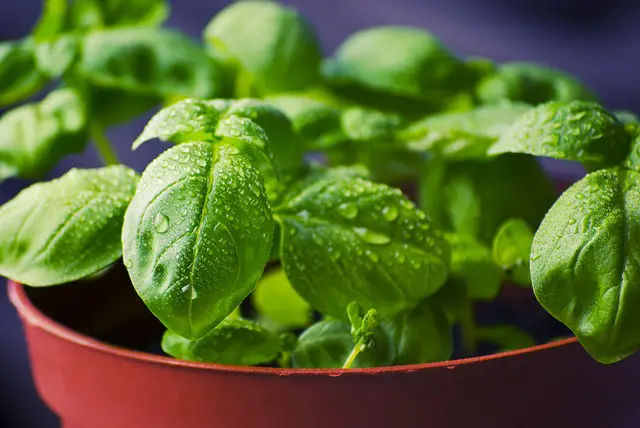
If you’ve ever been on my site before you’ll know I’m big on companion planting and I agree that basil is good for tomatoes. It’s true basil grown in companion with tomatoes will deter:-
- White fly
- Aphids
- Thrips
- Fruit flies
- Flies
It even improves the growth, taste, and health of tomatoes but it does not make them sweeter. I use basil as a companion plant and I grow it in with my tomatoes but not to improve sweetness. For more information on companion planting basil click here.
Adding Sugar To The Planting Hole Makes Tomatoes Sweeter
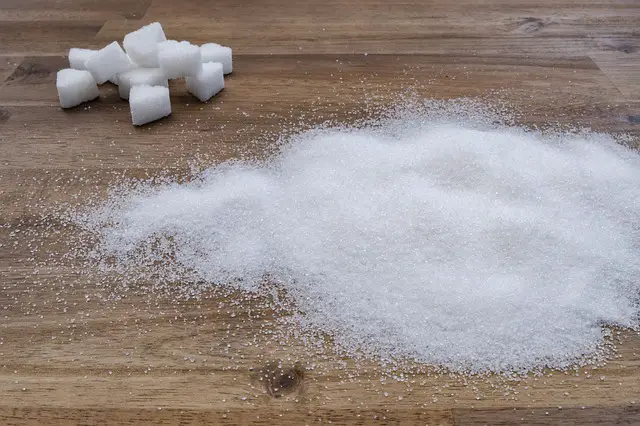
Another myth, I get the reasoning and to the uninformed it might make some sort of sense but sadly it’s not true. See tomatoes don’t take sugar in through their roots, they convert sunlight into sugar (see above). You could pour a whole bag of sugar into the planting hole and it won’t make the tomatoes any sweeter.
What it will probably do is attract ants, as they love sugar and if you get ants they will probably bring aphids with them. So instead of improving your tomatoes you will weaken them, and by putting the plant under stress at an early age it might die.
Using Epsom Salts Makes Tomatoes Sweeter
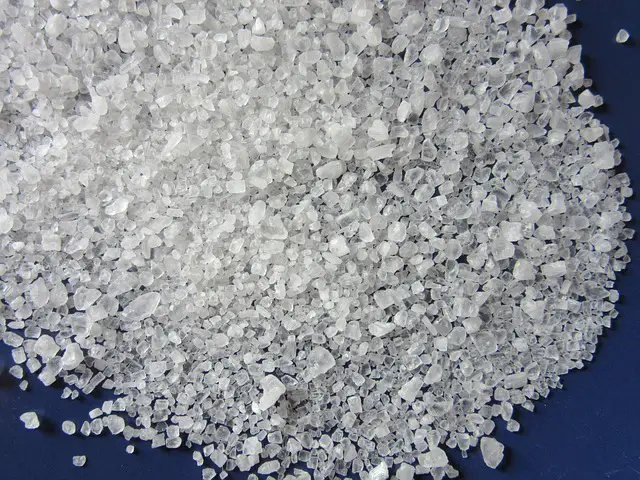
Epsom salts is the gardeners friend it aids nutrient uptake, prevents transplant shock, improves germination, Increases fruit production, and prevents blossom end rot. It does not however make tomatoes sweeter. For more on the benefits of epsom salts click this link.
I hope this helps you to grow sweeter tomatoes and keep away from the myths and mistakes of others. That doesn’t mean I’m against experimenting, and if you find anything else that makes your tomatoes sweeter please let me know in the comments below.

